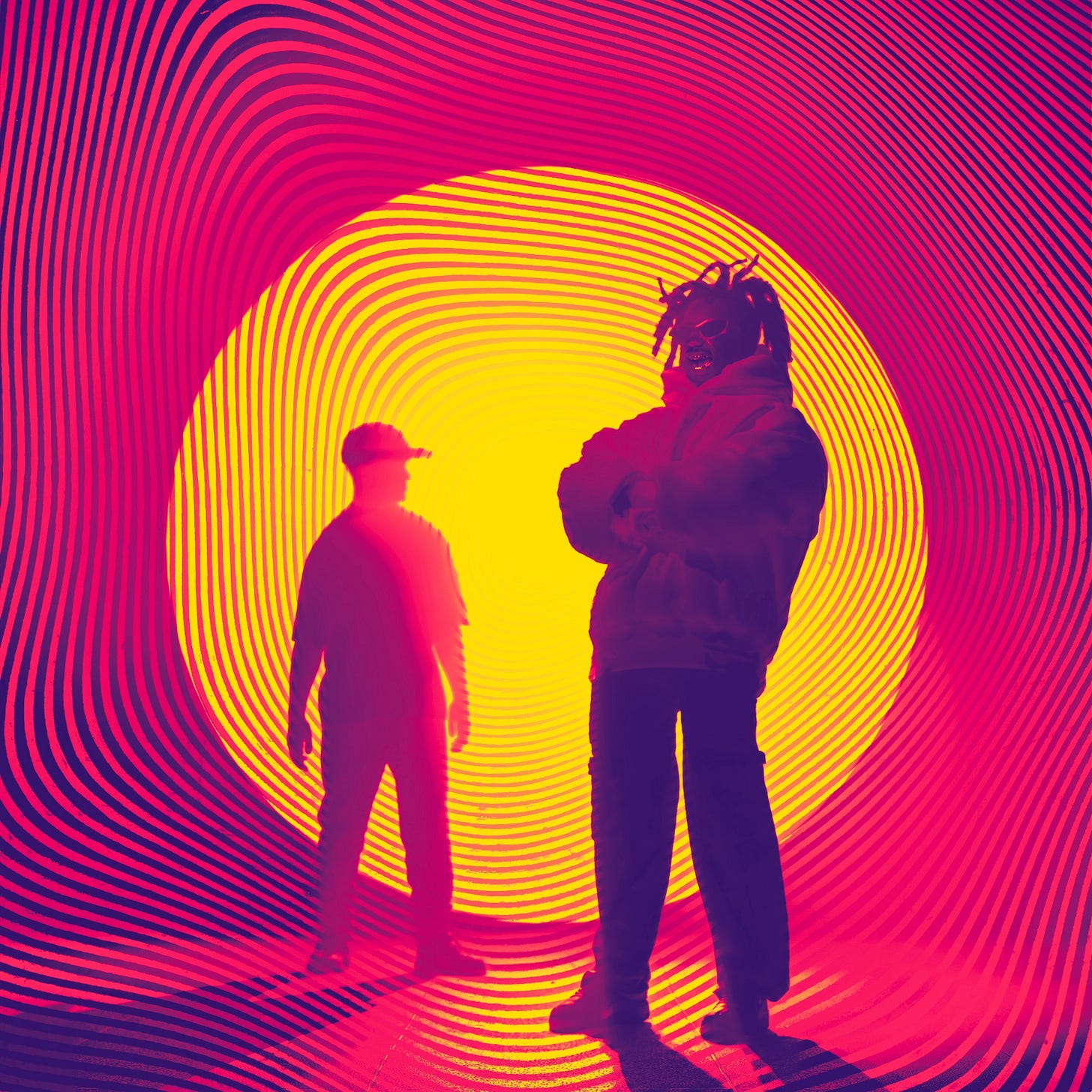Album Review: Live and In Color by Juicy J & Logic
When a Maryland technician links with a Memphis trailblazer, the album proves that respect and curiosity can bend genre lines without breaking them.
Although the two artists have already appeared together on several strong tracks, the pairing of Logic and Juicy J still feels a little surprising at first glance. On one side stands the socially minded MC from Maryland who favors jazzy beats and intricate technique and once turned the American National Suicide Prevention Lifeline into a chart hit. On the other side is the Memphis legend from Three 6 Mafia, fifteen years his senior, a pioneer of modern trap who loves to mow down rivals in one verse and blow a year’s salary in the strip club in the next. The two seemingly different rappers now commit to a full-length LP, and—contrary to expectations—it works. The primary reason is the record’s concept: it relies solely on what each musician does best. Logic raps on barely a third of the album, but handles all of the production—an idea that sparked Live and In Color in the first place.
He had long wanted to produce an entire project for another rapper, so he asked his friend almost jokingly; Juicy, as they explain in one of the “Discussion” skits, took the offer seriously. Instead of watering things down, they chose a crafty method. Juicy laid his vocals over trap beats, then Logic lifted the tracks and re-dressed them in boom-bap. Each artist stays on familiar ground while highlighting the other’s strengths. Juicy’s prior solo set, Ravenite Social Club, flirted with jazz elements but echoed Robert Glasper more than J Dilla. Here he tackles the very style he once opposed in the late ‘90s, the one that helped define the underground. Logic seizes the chance, building warm, soulful backdrops for Juicy’s unmistakable cadence as if the dark Memphis-trap palette had never existed.
The opener “Live and In Color” sets the stage, with both MCs stating who they are and why they’re here. Between tracks, they sit down for “Discussions” that touch on hip-hop’s status symbols, career advice (“keep your nose clean”), and candid thoughts about family life and sex. Their good-natured laughter feels genuine and grounded. Two veterans who have seen it all no longer need fragile egos or manufactured images. Outside voices are scarce. Juicy’s brother, Project Pat, appears twice, meeting the boom-bap challenge on “Get Right” with ease. Their second joint effort, “20 Years Later,” becomes a highlight even though their legacy talk rides skittering trap hi-hats; the song never breaks the album’s spell.
Another guest, Wiz Khalifa—who helped Juicy enjoy a second wind with “Bandz To Make Her Dance”—slides into “Black Rothstein,” a track that coasts on an easy West-Coast bounce of the sort Larry June or Curren$y might choose today. The rest of the record sticks almost entirely to straight boom-bap yet never grows stale. Logic’s detail-oriented beats tweak the Golden-Era formula just enough to stay fresh. Three decades after Mystic Stylez, Juicy J still commands the mic with a loose, conversational delivery reminiscent of Snoop Dogg. Even when the lyrics orbit his favorite quartet—money, guns, women, weed—his flow could enliven an instruction manual, provided Logic is behind the boards.
Great (★★★★☆)
Favorite Track(s): “Get Right,” “20 Years Later,” “Black Rothstein”


